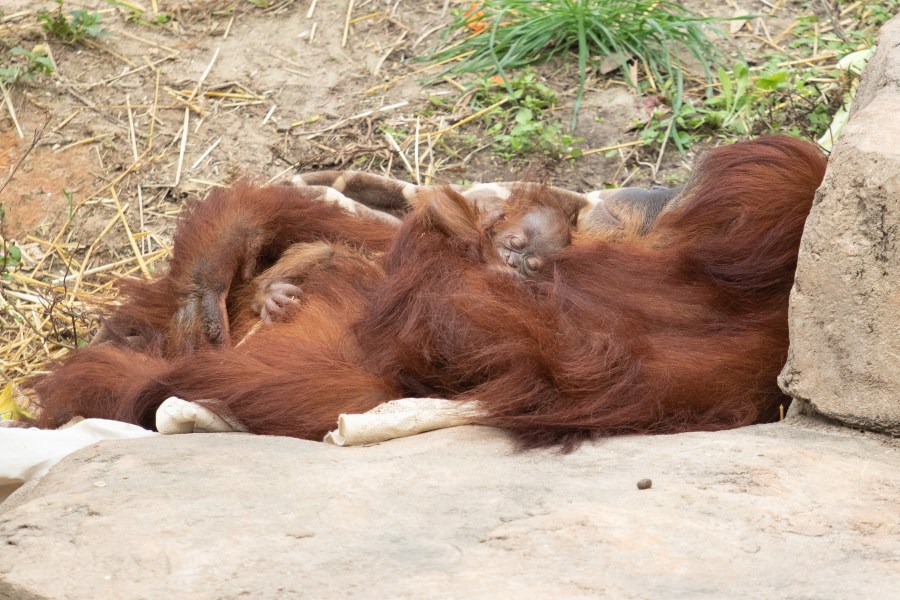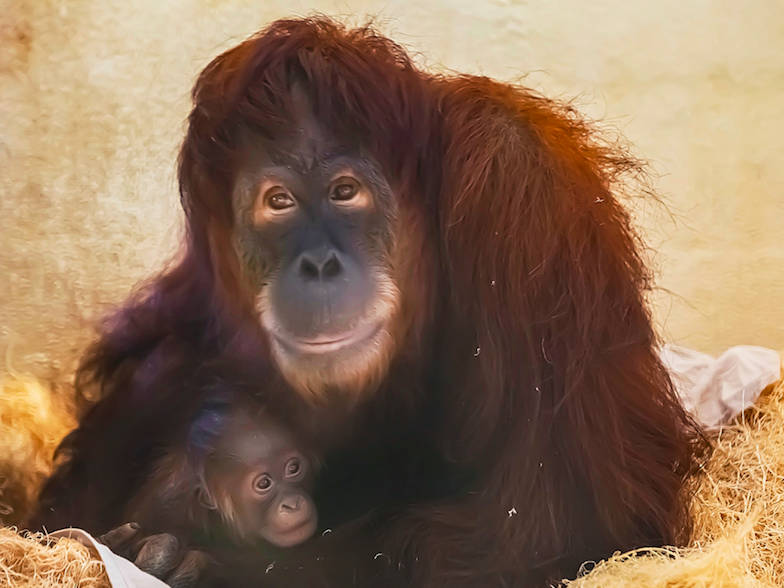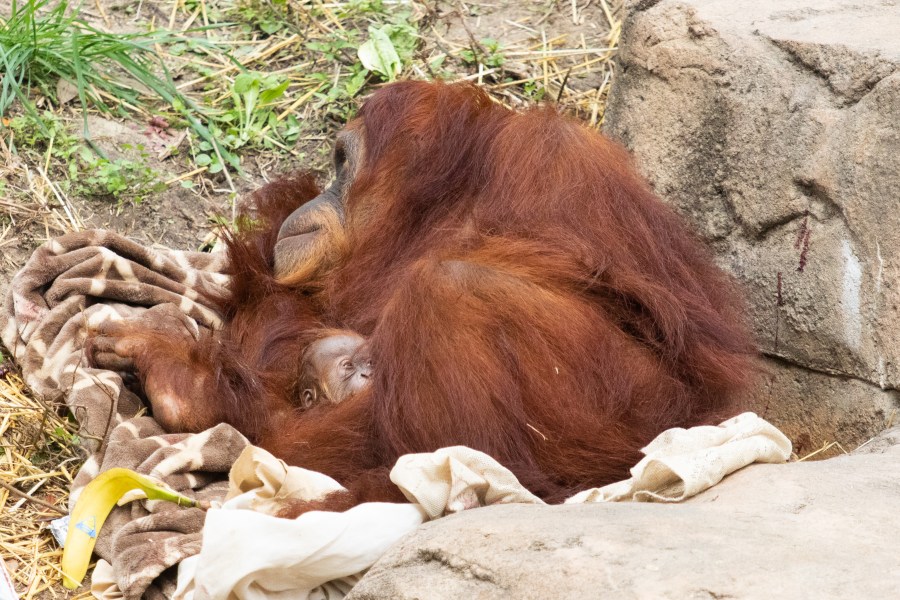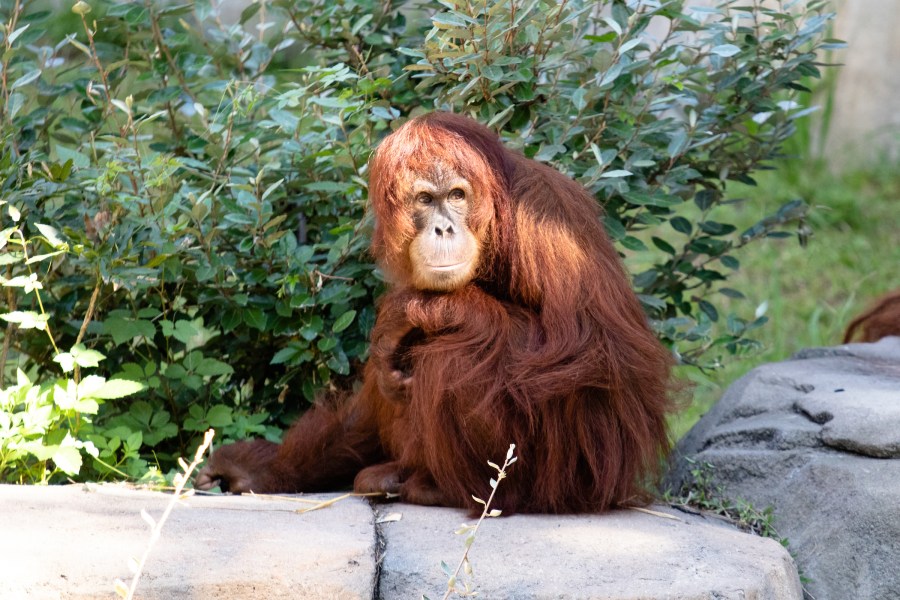NEW ORLEANS — Born on February 28, the critically endangered Sumatran orangutan infant was given access to the outdoor orangutan habitat for the first time. The infant can now spend its days with the rest of Audubon Zoo’s orangutan group.
Sumatran orangutans have been assessed by the International Union for Conservation of Nature as “critically endangered” and therefore threatened with extinction-there are fewer than 14,000 living in the wild and their numbers are declining, mainly due to human-wildlife contact due to the spread of palm oil plantations into their forest habitat.
This new arrival is the first offspring for the Zoo’s 12-year-old orangutan Reese and was the result of successful breeding with Jambi, the Zoo’s male orangutan.
Though Reese is a first-time mother, she saw her mother giving birth and raising her brother during her time at Albuquerque BioPark Zoo in New Mexico, her first home. Reese also witnessed Feliz, Audubon Zoo’s orangutan matriarch, give birth to Bulan in 2019.
Reese and Bulan have a special bond and are often spotted eating, sleeping, or foraging together in their habitat. This experience with infants has helped to prepare Reese to become a mother.
Reese’s care staff and the Zoo veterinary team have worked diligently through daily training and enrichment sessions to prepare the young orangutan for motherhood. With any first pregnancy, there is the possibility of issues with lactation, basic mothering skills, and dynamics within the orangutan group post-birth.
So, as is standard procedure with all primate mothers, Reese’s care staff has worked with her to ensure that she will be comfortable with the possibility of staff assisting her with feeding or caring for the infant if necessary.
“Thus far, Reese is showing very positive signs of her maternal instincts kicking in,” said Audubon’s Senior Veterinarian Bob MacLean. “She is holding the infant close and tending to it well. We are continuing to monitor for signs of nursing and lactation.”
Jambi, the Zoo’s male orangutan, has sired Feliz’s infant Bulan in 2019 and now Reese’s infant since arriving from Hannover Zoo in Germany in 2018. With Jambi’s move from Germany to the U.S. and into the Sumatran orangutan population within the Association of Zoos and Aquariums, he has added critical genetic diversity of the species and is classified as one of the most genetically valuable males in North America.
Maintaining a genetically diverse population in human care is important because Sumatran orangutans have been assessed by the International Union for Conservation of Nature as “critically endangered” and therefore threatened with extinction—there are fewer than 14,000 living in the wild and their numbers are declining, mainly due to human-wildlife contact due to the spread of palm oil plantations into their forest habitat.
“To help orangutans in the wild, we recommend purchasing products with sustainably grown palm oil,” said Wilson. “Around the world, those using sustainable practices in logging and agriculture are demonstrating that it is possible to conserve wildlife habitat while supporting the local economy.”
The orangutan group at the Zoo serves as ambassadors for their species, teaching guests about the plight of Sumatran orangutans in the wild due to human-wildlife conflict. Audubon is committed to helping create experiences that spark action and empower visitors to impact the natural world for the better.
































